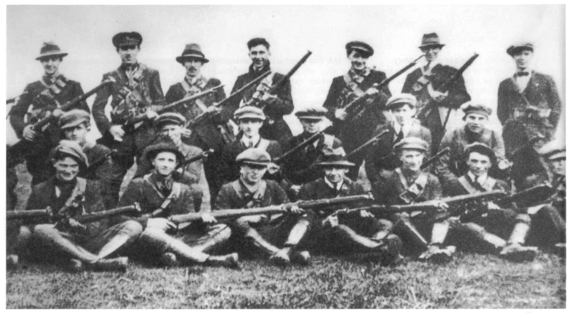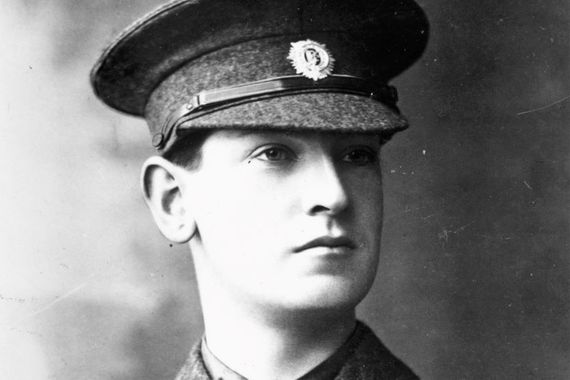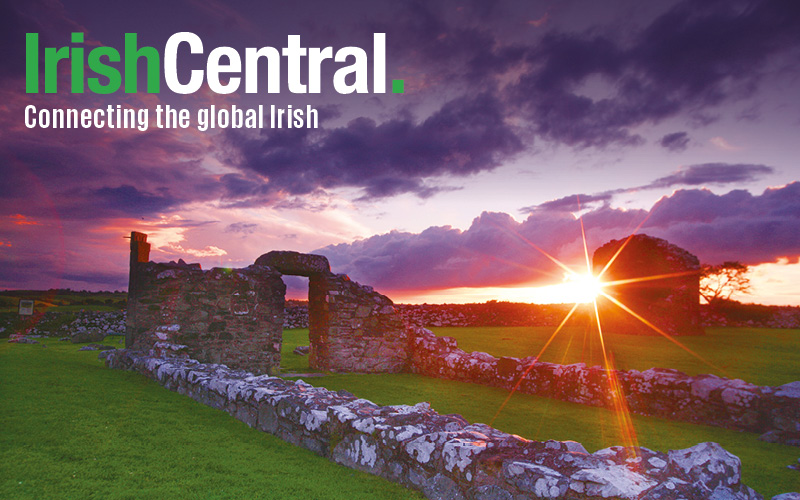Collins recognized that the war would not be won militarily. The IRA would play an important role, but it would not be decisive.
As in most guerrilla wars, and certainly in the few successful ones, the Irish tactics, techniques and procedures in the 1919-1921 War of Independence do not appear to have been part of a plan deliberately contrived and constructed in advance.
The Irish learned from the past—and guerrilla warriors who followed learned from the Irish, as well.
Colin Gray put it thus: one should not suggest that the judgments drawn from the Irish war can serve as a general paradigm or template for the conduct of all insurgencies that followed, but when those judgments are reviewed and translated into “lessons” it is tempting to suggest that if one understands the belligerents in, the course of, and the outcome to the Irish war, then one has the lessons for future insurgencies.
Read more: Why has the Irish War of Independence been forgotten by Irish America?

Hogan's Flying Column.
In an age of worldwide communications and a pervasive media, with conflicts often muddied by conflicting moral and ethical claims to the high ground, it is difficult for a democracy to wage a counterinsurgency campaign.
Politicians and soldiers would do well to examine the unique circumstances of the Anglo-Irish struggle and attempt to anticipate the traps that ensnared both sides and eventually led to British withdrawal.
Oftentimes the military actions required to quell the insurgency will provide the insurgents with the other elements of compound war needed to ensure success, i.e., lack of political will on the part of the larger forces, and the effects of propaganda on that political will.
In reality, the purpose of the IRA was not so much to defeat the British army as to force Britain to negotiate a settlement based on the Irish claim to independence.
Historian of guerrilla war Max Boot elaborated: “In the 21st Century we’ve become used to ragtag rebels beating military superpowers. Armed with little more than the will to carry out shocking acts of terrorism and the savvy to cultivate worldwide sympathy through the media, the little guy has come out on top more often than you’d expect. … What few remember is that the script followed by groups as diverse as the Vietcong and the Taliban was written in Ireland during its 1919–1921 War of Independence, the first successful revolt against the British Empire since the creation of the United States of America.”
Read more: On This Day: The Kilmichael Ambush during Ireland's War of Independence

A young Michael Collins.
In retrospect, it is clear that Michael Collins and the Irish leaders realized during 1919-1921 that the three-cornered approach of military action, politics, and propaganda, all augmented by intelligence, was the approach they had to take in order to achieve native Irish governance. It was this realization, rather than specific theorizing about a prolonged guerrilla war in Frongoch or the other British prisons, which led to the pursuit of a guerrilla success that ended in the Truce of July 1921.
Charles Townshend wrote “the means were dictated by circumstance. Slender resources created the style of warfare, rather than a conviction that it held a real hope of success.”
With few men, and little ammunition, Collins knew he could not beat the British by force, but he could defeat them through their retaliatory conduct, and the resulting propaganda pressures brought to bear on the British.
The Irish nationalist of 1919-1921 took little account of the history of British rule. Following the 1916 Rising, nationalism took account only of the fact of British rule. In 1920, Richard Dawson wrote: “Our Nationalism is not founded upon grievances. We are not opposed to English misgovernment, but to English government in Ireland. Here, then, we are face to face with an abiding principle of insurgency. Evil memories may be transient, withered by time or effaced by gratitude, but hatred of a fact persists so long as the fact continues.”
Ultimately, the Irish strategy was based on the fundamental principle that superior political will, properly employed, could defeat a greater economic and military power. Collins and the Irish organized to ensure political rather than military success, after understanding the Irish could not “win” militarily, but nor could the British defeat them by military power alone.
The strategic function of the Irish guerrilla war was to defeat the British psychologically and politically.
The tactical function of the Irish flying column was to remain in operation and remain alive. The Irish had to keep the heat on until the British government decided that it had had enough of the violent disorder in Ireland—and the negative publicity that entailed. Collins did not seek an unattainable military victory, but a dignified British withdrawal.
A government cannot outfight an insurgency. It must out-govern the rebels.
Bernard Fall, one of the most respected writers on guerrilla warfare of the 20th century wrote that “a government which is losing an insurgency is not being out fought—it is being out-governed.”
The British did not govern Ireland well.
The Irish did not “win” the war—but they “succeeded” by defeating the British political will. The British never did learn that “the more force you use in counterinsurgency action, the less effective you are.”
Collins recognized that the war would not be won militarily. The IRA would play an important role, but it would not be decisive. If guerrillas attempt to win with military force only—they will lose.
The Irish War of Independence demonstrated that, given some favorable circumstances, an insurrection has a fair chance of success.
Joseph E.A. Connell Jnr. is the author of The Shadow War, Michael Collins and the Politics of Violence, available from Wordwell Books. Connell can be contacted through Wordwell Books.




Comments